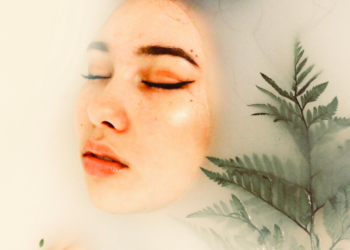Choosing the right perfume is quite a difficult task. In addition to the fact that it should fit you, it should also be of high quality, durable, and reflect your personality. In this article, we have collected the most important rules that will help you accurately choose a good fragrance.
For perfume shopping, go in the morning. In the daytime, the brain distinguishes odours more easily; by evening, olfactory reflexes weaken.
Test only on your hand
The fragrance smells different on the blotter and on the skin. The fact is that it changes under the influence of the pH level and body temperature (therefore, perfume is revealed individually to everyone).
Do not rub the fragrance after application
It should “sit down” on the skin on its own and open up. In addition to your wrist, test the fragrance on your collarbones, neck, and hair (they “capture” smells best). Heavy and rich compositions sound best on the skin, but fresh and light compositions stay firmly on clothes.
Give it time
The fragrance unfolds within 20 minutes, mixing with natural body odour and oxygen. If after half an hour you can still clearly hear the perfume, it does not suit you (the ideal aroma “merges”). While you are waiting for the aroma on your hand to open, you can spend your time with benefits and try to make money on the Bet22 platform. You will receive not only vivid emotions but also the opportunity to win a large amount that can be spent, for example, on a new fragrance.
Decide on tastes
Woody, oriental, floral, citrus, chypre – think about which family of fragrances is closer to you and choose from them.
Don’t choose a fragrance on a full stomach
The trick is that the sense of smell works harder on an empty stomach. The receptors recognize all the details of the perfume composition, and you clearly feel the aroma.
Interesting Fragrance Facts:
For many years, archaeologists have focused on the material objects of the ancient world – the remains of amphoras and the personal belongings of people. But now they began to pay more and more attention to the aromatic landscape of that time. And what haunts researchers for many years is the perfume used by the last queen of Hellenistic Egypt, Cleopatra.
It all started with the fact that in 2012, archaeologists Robert Littman and Jay Silverstein discovered a perfume factory (2300 years old) filled with bottles and amphoras with the remains of perfume. It was noteworthy that it was not far from Mendes, the city after which the famous Mendes spirits are named. It is believed that Cleopatra loved to use this fragrance. Due to their popularity among the Egyptian elite, their written recipe was preserved in ancient Greek and Roman, which helped researchers in the future.
Egyptologist Dora Goldsmith and professor of Greek and Roman philosophy Sean Coughlin attempted to recreate the Mendes spirits. In 2019, as a result of experiments with components such as desert date oil, myrrh, cinnamon, and pine resin, scientists created a “persistent, spicy, slightly musty perfume.” But that was only the beginning.
Although the team of scientists has come very close to accurately recreating Cleopatra’s eau de toilette, it is still unclear whether the surviving Roman and Greek descriptions of the Mendes perfume match the Egyptian recipe. Then a team led by Jacopo La Nas, an analytical chemist at the University of Pisa, studied 46 vessels, jugs, bowls, and pieces of organic material from the queen’s tomb. Tests revealed traces of burnt frankincense and myrrh, but not all tests were as successful. And this month in the journal Archaeological Science, the team reported on the discovery of residues of oil, grease, and beeswax, all of which could be the basis for a perfume. It seems that the researchers are on the right track and very soon we will find out what Cleopatra actually choked.



